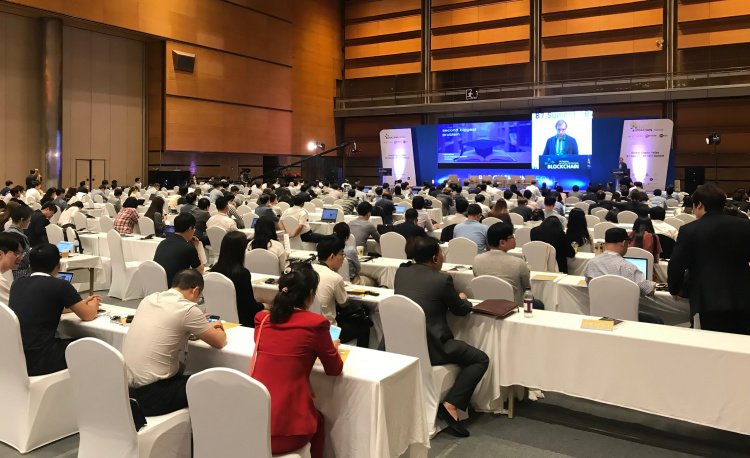Blockchain Seoul — 2018: Asian market is fenced off to the interference of the Europeans and Americans with the intellectual product

Just the other day, on September 19, one of the largest forums of the DLT-industry, “Blockchain Seoul — 2018”, finished in South Korea.
Just during four days, about two thousand people visited the event in the capital of one of the leading countries of the world digital economy. At least 50 blockchain projects from Switzerland, Malta, Hong Kong, Singapore, Estonia, and Lithuania were presented within the program of the exhibition-conference. These are the countries where the DLT-industry is developing rapidly. Moreover, not all companies are planning to go for the ICO. They just talked about themselves and invited people to use their services. And this is one of the main distinguishing features of the Asian digital business. The implementation of projects in the virtual market is done not by young programmers and users of various networks, but by matured businessmen who have successfully invested their money in modern technologies for a long time.
The level of the forum guests is due to this. In particular, the authorities of the Republic of Korea were represented at the summit by the Governor of the Island of Innovations Jeju Won HEE-ryong. In addition, the Minister of Finance of the Republic of Lithuania, Vilius Sapoka, the President of the Singapore Association of Fintech, Chia HOCK LAI, the Director of the Estonian Cryptocurrency Association, Asse SAUGA, and many others participated in the event.
The Korean virtual market is growing rapidly. Experts think it is due to the position of China that forced many degage but promising blockchain projects out of its territory. Now, the Land of the Morning Calm, like a sponge, is absorbing projects, technologies, and specialists in the field of distributed ledgers. But not everything is so simple. The informal threshold of entry to the Asian digital territory is quite high. "Bare startups" and frank scam are not welcome there.
Evidently, for this reason, investors, represented Japan in a big amount, paid so much attention to informal communication. Some entrepreneurs who know how to do business were looking for specialists who know their industry. And, in conversations, figures less than, let us say, $1 million were seldom voiced.
Another interesting observation is the change in the social status and age of the participants. If earlier such events were the gathering point of young millionaires in colored T-shirts, now the public looked like different. Business suits, expensive ties, and concerned faces. The Asian market is very mature and serious. Only students in white suits who came to listen to the lecture of their teacher stood out.
As a result of the event, one important trend can be identified; the accents on the world digital market are shifting significantly. Many were waiting for serious investments in virtual assets and DLT-technologies from the companies of the Old World. However, it turned out differently. It is Southeast Asia that becomes the center of the new economy. Moreover, many local projects are not aimed at the global hype at all.
Authors and investors do not want to rearrange the world; they are clear-eyed about their capabilities and do not come up with great missions. They simply create a real traded product. And their attitude to European and American colleagues can be characterized by one phrase: investments - yes, intellectual participation in projects - no. Europe and America will not understand us, Koreans say.
According to many listeners from different parts of the world there is a common perception, if the Asian economy continues to absorb virtual finance at such rate, Europe and America will have to be satisfied with the second and third roles in the global distribution of finance.